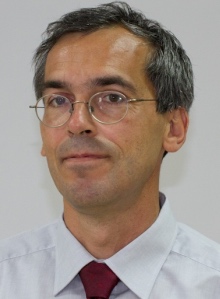
ZVONIMIR ŠIPUŠ
https://aolab.fer.hr/aolab/people/zvonimir_sipus

Zvonimir Šipuš je rođen 12. ožujka 1964. godine u Zagrebu. Diplomirao je i magistrirao na Elektrotehničkom fakultetu u Zagrebu 1988. godine, odnosno 1991. godine, a doktorirao je 1997. godine na Chalmers University of Technology, Göteborg, Švedska.
1. Predavanje: 6G za početnike
2. Predavanje: Ribbon-fiber mreže
Ribbon optički kabeli nude višestruke prednosti u usporedbi sa standardnim kabelima s labavim vlaknima:
- operateri imaju fleksibilnost odabira masovne fuzije ili pojedinačnog spajanja,
- brzina spajanja se povećava s masovnim fuzijskim spajanjem i
- lakše je identificirati takvi kablovi.
Dodatno, zamjena RIBBON-a umjesto pojedinačnih vlakana unutar optičkog kabela omogućuje kompaktnije pakiranje, tj. manji su po veličini i težini i općenito lakši za rukovanje od usporedivih pojedinačnih kabela koji se temelje na vlaknima. Nedavno je nekoliko međunarodnih tijela za normizaciju opisalo RIBBON kabele, uključujući Međunarodnu elektrokemijsku komisiju (IEC) i Udrugu inženjera izoliranih kabela (ICEA).

Zvonimir Šipuš was born in Zagreb, Croatia, in 1964. He received the B.Sc. and M.Sc. degrees in electrical engineering from the University of Zagreb, Croatia, in 1988 and 1991, respectively, and the Ph.D. degree in electrical engineering from Chalmers University of Technology, Gothenburg, Sweden, in 1997.
Lecture #1: 6G for dummies
Lecture #2: Ribbon-fiber networks
Ribbon optical cables offer multiple advantages comparing to standard loose fiber cables:
- the operators have flexibility to choose mass fusion or single splice,
- the splicing speed is increased with mass fusion splicing, and
- it is easier to identify such cables.
Additionally, substituting ribbons instead of individual fibers within an optical cable allows more compact packing, i.e. they are smaller in size and weight and generally easier to handle than comparable individual fiber-based cables. Recently, fiber ribbon cables have been described by several international standards bodies, including the International Electrochemical Commission (IEC) and the Insulated Cable Engineers Association (ICEA).
